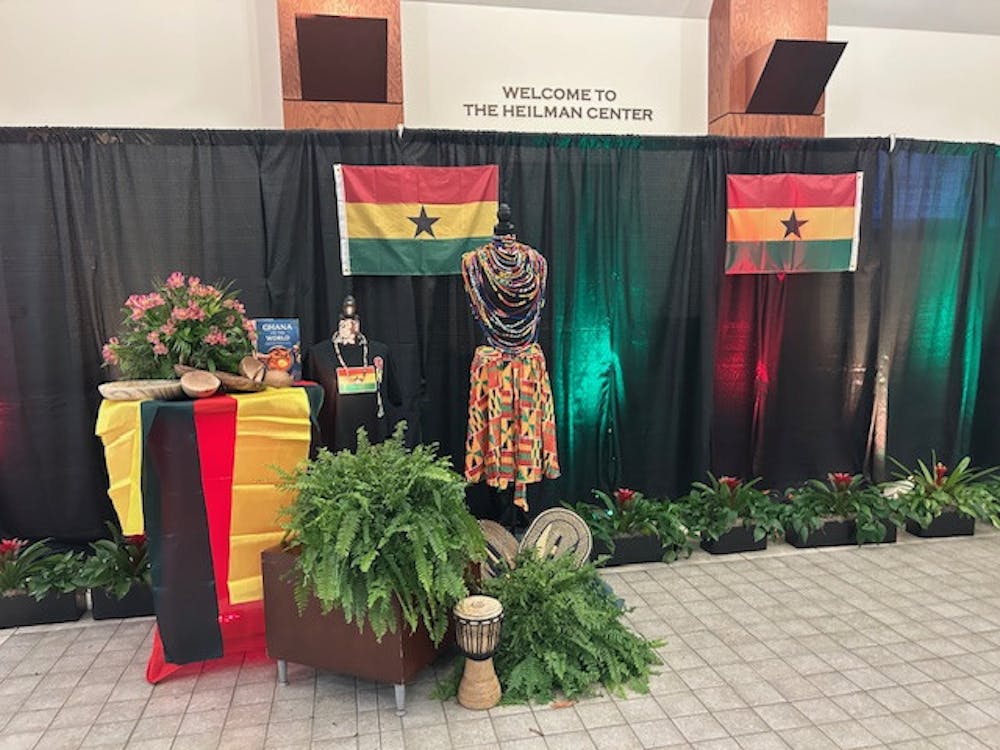Journalists played an imperative role in informing the world about the attacks through their coverage, and the staff members of the Collegian in September 2001 were no different. They not only remember Sept. 11 as University of Richmond students, but also as journalists attempting to get information out to their peers and professors.
The same Tuesday that the attacks occurred, the Collegian staff canceled all previously planned stories for the upcoming edition, and met to draft a plan for coverage of the tragedy, said one former member, Preston Knight, a freshman serving as an assistant copy editor at the time.
"[Professor Mike] Spear was there too," Knight said, "and it was one of the few times the faculty adviser was that involved in putting out a week's paper, just in giving us some perspective and ideas."
"As a new person in journalism," Knight said, "the 9/11 experience was the first one where I got a glimpse of how a newsroom operates. We assigned stories and turned around a paper in two days."
The library's page on Richmond's website features an archive of past Collegians, and the Sept. 13, 2001, edition focused mainly on how the terrorist attacks had affected life for students and faculty and activities on campus. This included coverage of support groups that had been set up for grieving community members, actions that had been taken to protect international students and opinion pieces that had been written by students of Middle Eastern descent.
Brian Pagels was a junior at the time of the attacks and a news editor on The Collegian. He recalled one of the most controversial decisions the university staff had been forced to make, and how the Collegian staff had chosen to cover it.
"The most memorable reaction to the attacks was the administration's decision not to cancel classes on Tuesday," Pagels said. "The administration took some heat from students who felt it was a cold-hearted decision."
The Collegian staff did the best it could to cover both the administration's side of the decision and the feelings of discontent among students, Pagels said.
"We reported on it, and featured several op-eds in response to the decision," Pagels said. "The administration's position was that they would rather have students in class with their peers and their professors to talk about the attacks than have them deal with the tragedy in the relative solitude of their dorm rooms."
The Collegian even featured a letter to the editor written by the Provost at the time, June Aprille, defending the university's position.
Knight contributed to the coverage of the blood drive that had been organized. The drive was unable to handle the overwhelming student demand to give blood.
"When something of such national magnitude happens, as a journalist, you want to find a way to localize it and do your part in telling the story," Knight said. "I wrote about a blood drive, and while that wasn't the most exciting of things to come out of that paper, I felt I contributed to telling the story of 9/11 for our campus."
Enjoy what you're reading?
Signup for our newsletter
The Collegian also published several stories and opinion pieces that expressed concern for the safety of students who were, or appeared to be, of Arab, Iranian or South Asian descent. According to an article written by Sarah Gregory and Karen Cahill, a meeting was organized soon after the attacks "to discuss the pros and cons of leaving international flags on the outside of the Atlantic House."
Pagels recalled several other ways in which the Collegian staff had attempted to protect international students through its coverage.
"To help prevent uninformed and hateful speech and violence, we asked several students from these minority communities to share their perspectives in the opinion section," Pagels said.
Many of the staff members had been personally concerned for their friends and peers on campus.
"As a freshman, I had made a Muslim friend - my first - and was concerned about how he'd be treated, but I don't think there were every any issues," Knight said.
Reactions among students and administration, whether involved with The Collegian or not, had differed. Some professors carried out classes normally and students made personal decisions whether to attend them or not, according to articles published in The Collegian.
"It was just the fact that this tragedy consumed everyone's attention, even if they weren't directly impacted by it," Knight said. "But being in college, with access to so much information and so many people, helped in getting back to whatever normal was."
Contact staff writer Caroline Dilworth at caroline.dilworth@richmond.edu
Support independent student media
You can make a tax-deductible donation by clicking the button below, which takes you to our secure PayPal account. The page is set up to receive contributions in whatever amount you designate. We look forward to using the money we raise to further our mission of providing honest and accurate information to students, faculty, staff, alumni and others in the general public.
Donate Now


